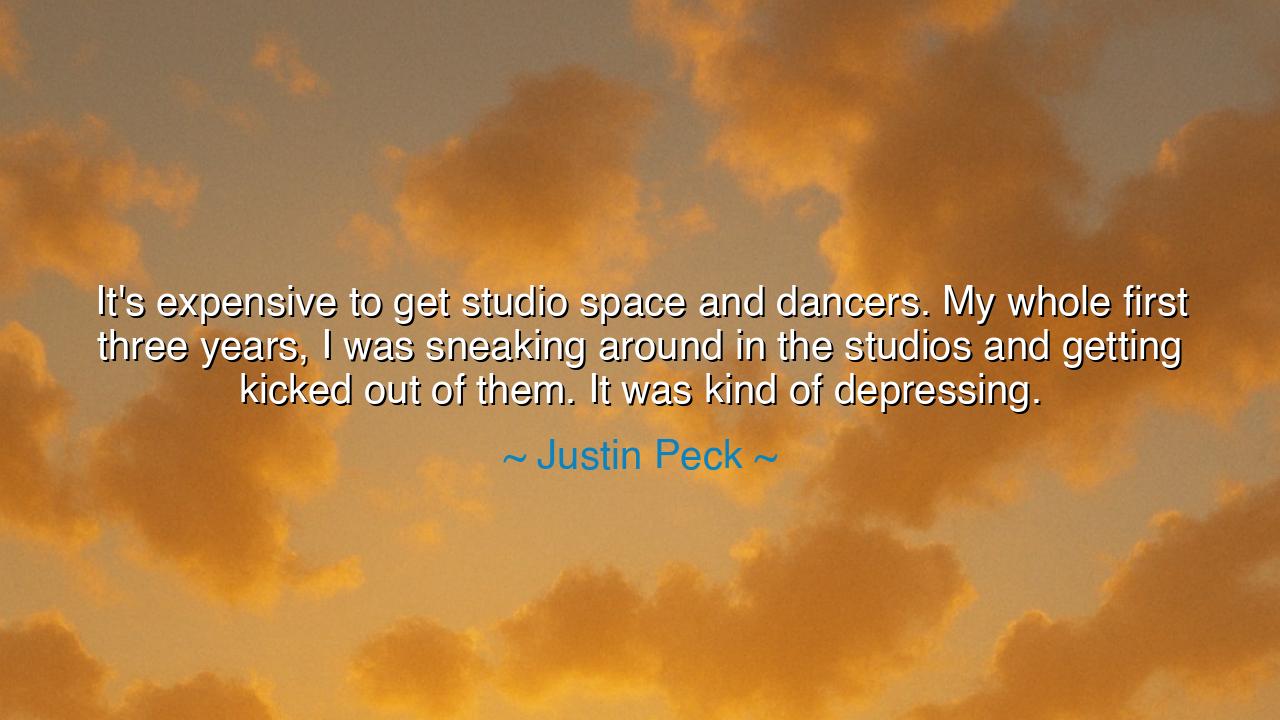
It's expensive to get studio space and dancers. My whole first
It's expensive to get studio space and dancers. My whole first three years, I was sneaking around in the studios and getting kicked out of them. It was kind of depressing.






Hear the words of Justin Peck, choreographer and dreamer of movement, who confessed: “It’s expensive to get studio space and dancers. My whole first three years, I was sneaking around in the studios and getting kicked out of them. It was kind of depressing.” These words are not simply about hardship, but about the relentless struggle of an artist who longs to create in a world that places walls before him. They reveal that beauty is often born not in ease, but in trial; not in abundance, but in scarcity. For the flame of art burns brightest when it is tested by the winds of rejection.
What is the studio space but the sacred temple where ideas are given flesh, where visions of the mind become steps upon the floor? And what are dancers but the living instruments through which the choreographer writes his symphony of movement? To be denied these is to be denied the tools of one’s calling. Yet Peck, though barred and expelled, continued to seek, to sneak, to steal moments with his art. His struggle speaks to all who labor in obscurity, who know the hunger to create but lack the means.
History, too, bears witness to such trials. Consider the tale of Ludwig van Beethoven, who in his later years descended into the abyss of deafness. For a composer, this was as if a painter lost his sight. Yet he continued to write, pressing his ear against the piano, feeling the vibrations through his body, conjuring music he could no longer hear. He was cut off from the tools of his trade, yet his spirit refused surrender. From this suffering emerged some of his greatest works, including the Ninth Symphony, a hymn to joy born out of silence. Like Peck, Beethoven’s art was forged in deprivation.
Thus we see the deeper meaning: the depressing years of rejection are not wasted years, but years of shaping. They carve the artist into one who values each opportunity, who builds resilience, who learns to create not because it is easy, but because it is necessary to his soul. For the true artist cannot stop; even if cast out of studios, even if denied resources, he will dance in empty rooms, sketch upon scraps of paper, compose in the silence of his mind. The world may deny him space, but the fire within will not be extinguished.
Peck’s words also remind us that society often underestimates the cost of art—not only in money, but in perseverance. Behind every performance, every painting, every song, lies not only talent but sacrifice. Too often the audience sees only the brilliance on stage, not the closed doors, the humiliations, the hunger endured behind it. To honor art rightly, we must also honor the struggles of those who create it, for their beauty is paid for with endurance.
The lesson, O seeker, is clear: if your path is blocked, do not turn back; if you are cast out, return again. Sneak if you must, struggle if you must, but never cease. For the years of rejection are the soil from which greatness springs. What feels depressing today may become the very story that inspires tomorrow. The gates of destiny are opened not to the strongest, but to the most persistent.
In your own life, remember this wisdom. Whatever your craft, whatever your dream, you may find that doors are closed, that space is denied, that others do not yet see your worth. Do not let despair bind you. Create with what you have, where you are, and trust that perseverance will open the way. For history belongs not to those who had everything handed to them, but to those who built greatness with nothing but stubborn faith.
So let Peck’s words echo as a guide: every artist must endure rejection before recognition. Take courage, endure the dark years, and keep faith in your craft. For in time, the world that cast you out may one day open its doors and invite you to lead. And when that day comes, your art will shine all the brighter, for it was forged in the crucible of struggle.






AAdministratorAdministrator
Welcome, honored guests. Please leave a comment, we will respond soon